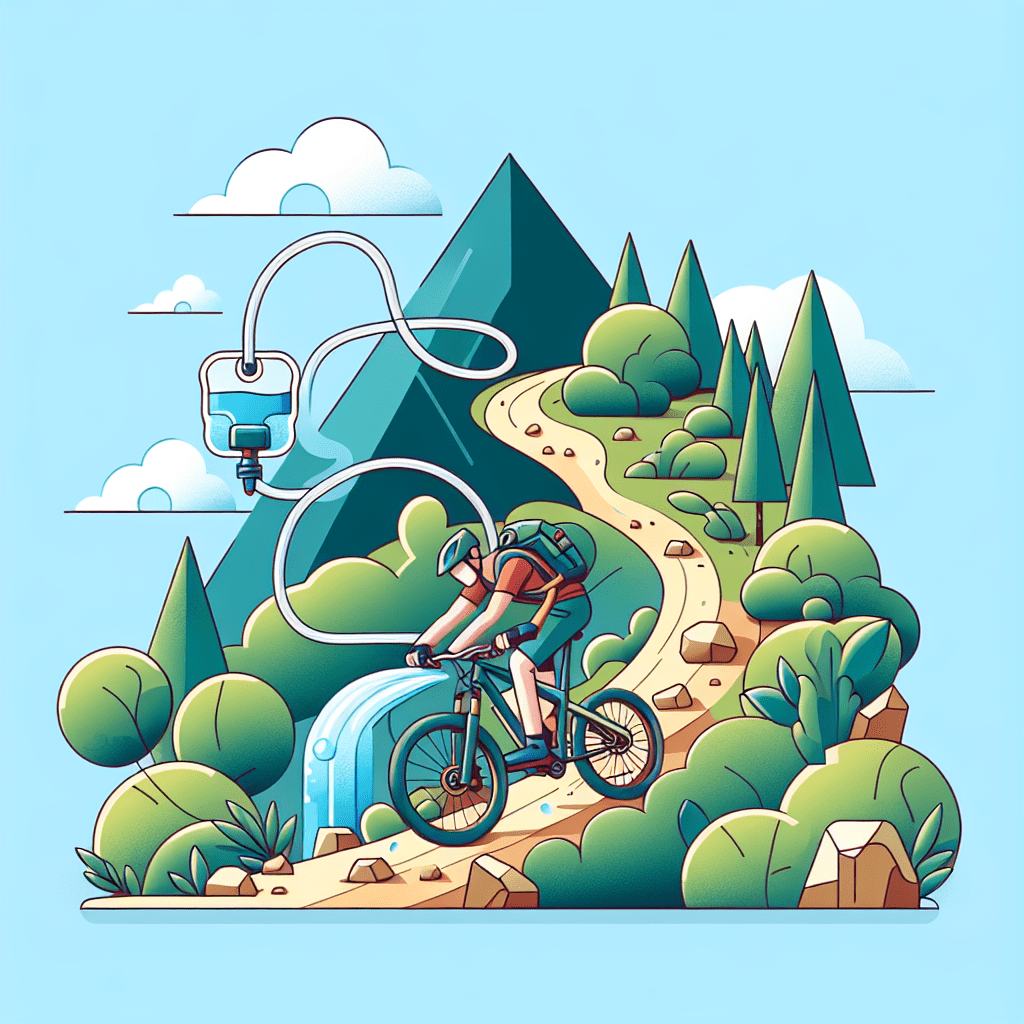Mastering Mountain Biking: Hydration Tips for Off-Road Adventures

Mastering Mountain Biking: Hydration Tips for Off-Road Adventures
Mountain biking is an exhilarating off-road adventure that tests your physical endurance and mental grit. But beyond the thrill and challenge, it also requires proper hydration to ensure optimal performance and safety. This article provides insights and tips on how to stay hydrated during your mountain biking adventures.
Understanding the Importance of Hydration
Hydration plays a crucial role in our overall health and well-being. It aids in maintaining our body's temperature, lubricating our joints, and transporting nutrients to give us energy and keep us healthy. When it comes to mountain biking, proper hydration is even more critical. It helps maintain your energy levels, improve your concentration, and prevent dehydration-related complications such as heat exhaustion and heat stroke.
As the famous saying goes, "Hydration is life". This is especially true when you're pushing your physical limits on a mountain bike.
How Much Should You Drink?
The amount of water you need can vary depending on several factors, including your body weight, the intensity of your ride, the weather conditions, and your sweat rate. However, a general rule of thumb is to drink at least half a liter (about 17 ounces) of water per hour of intense activity.
As the American College of Sports Medicine suggests, "Start hydrating before you start sweating." This means you should start drinking water before you even begin your ride to ensure you're adequately hydrated from the start.
What Should You Drink?
While water is the most essential drink, it may not be enough, especially during long or intense rides. This is where sports drinks and hydration tablets come in handy. They contain electrolytes like sodium and potassium, which are lost through sweat and need to be replaced to prevent cramps and maintain proper muscle function.
Remember, "Water is key, but don't forget about electrolytes," as noted by many sports nutritionists.
How to Carry Your Drinks?
There are several ways to carry your drinks while mountain biking. You can use a hydration pack, which is a backpack with a water reservoir that you can drink from through a tube. You can also use water bottles that fit into cages on your bike. Some mountain bikers prefer to use both for longer rides.
Listen to Your Body
Finally, it's essential to listen to your body. If you're feeling thirsty, that's a clear sign that you need to drink. Other signs of dehydration include fatigue, dizziness, and dry mouth. Don't wait until you're feeling these symptoms to hydrate.
"Dehydration can affect brain structure and function. It is also involved in the production of hormones and neurotransmitters."
These words from a scientific study highlight the importance of hydration not just for physical performance but also for cognitive function, which is crucial when navigating tricky off-road trails.
Conclusion
Mastering mountain biking requires more than just physical strength and skill. It also requires proper hydration. By understanding the importance of hydration, knowing how much and what to drink, and listening to your body, you can ensure a safe and enjoyable off-road adventure.
As the final thought, remember the words of Benjamin Franklin, "When the well is dry, we know the worth of water." Don't wait until your 'well' is dry while mountain biking. Stay hydrated and enjoy the ride!
Summary
Proper hydration is essential for mountain biking. It helps maintain energy levels, improve concentration, and prevent dehydration-related complications. The amount of water needed can vary, but a general guideline is to drink at least half a liter of water per hour of intense activity. In addition to water, sports drinks and hydration tablets can be beneficial for replacing lost electrolytes. It's crucial to listen to your body and hydrate when feeling thirsty or experiencing signs of dehydration. As a final note, remember the importance of hydration not just for physical performance but also for cognitive function.



